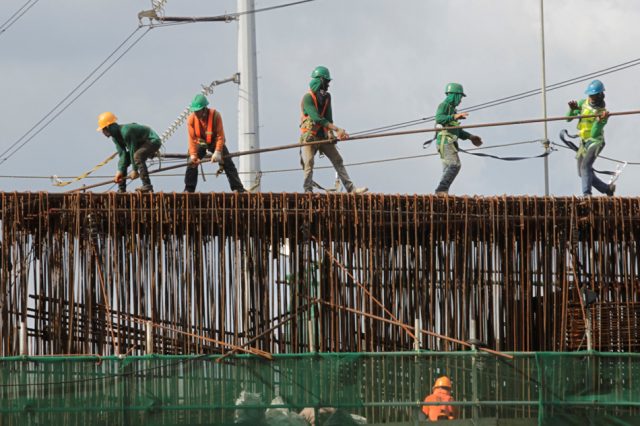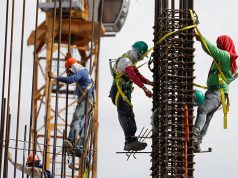MANILA – The government needs to create more job opportunities through building infrastructure projects and essential health and education services to increase employment figures, said the country’s economic planning chief.
National Economic and Development Authority (NEDA) Director General Ernesto Pernia said the country could innovate job opportunities by “developing low-cost, labor-intensive but efficient methods for meeting current infrastructure needs.”
The Duterte administration intends to ramp up infrastructure spending to P8.44 trillion over the next six years.
Pernia also pushed a closer coordination between sectors for easier skills matching. “We can further enhance current programs like the Government Internship Program (GIP) and JobStart Philippines to help workers make informed career decisions and acquire skills necessary in today’s competitive environment,” he said in a statement.
The NEDA noted that the decreasing unemployment rate must be sustained, together with higher job creation, to reduce unemployment to around 3 percent by 2022. This is among the key targets in the Philippine Development Plan 2017-2022.
Based on the April 2017 Labor Force Survey (LFS) of the Philippine Statistics Authority, an attached agency of the NEDA, the country’s unemployment rate went down to 5.7 percent from 6.1 percent in April 2016.
Underemployment rate, or the proportion of employed persons wanting additional work, also reached its lowest in more than 10 years at 16.1 percent in April 2017.
This is lower by 962,000 workers, or 12.9 percent, compared with underemployed workers recorded in April 2016.
Meanwhile, employment in the agriculture sector rose by 125,000 workers, industry increased to 7.4 million workers, while manufacturing hired additional 55,000 workers.
“Increased activity confirms the renewed positive outlook of exporting firms that had anticipated increases in the volume of export production,” said Pernia.
However, the services sector — which accounts for more than half of the country’s total employment — recorded a net employment loss of 557,000 workers.
“This loss could be an effect of the 2016 election spending fully tapering off. It is possible that recent changes in labor policies regarding contractual workers may have had an adverse effect on firms’ hiring decisions,” added the NEDA chief.









